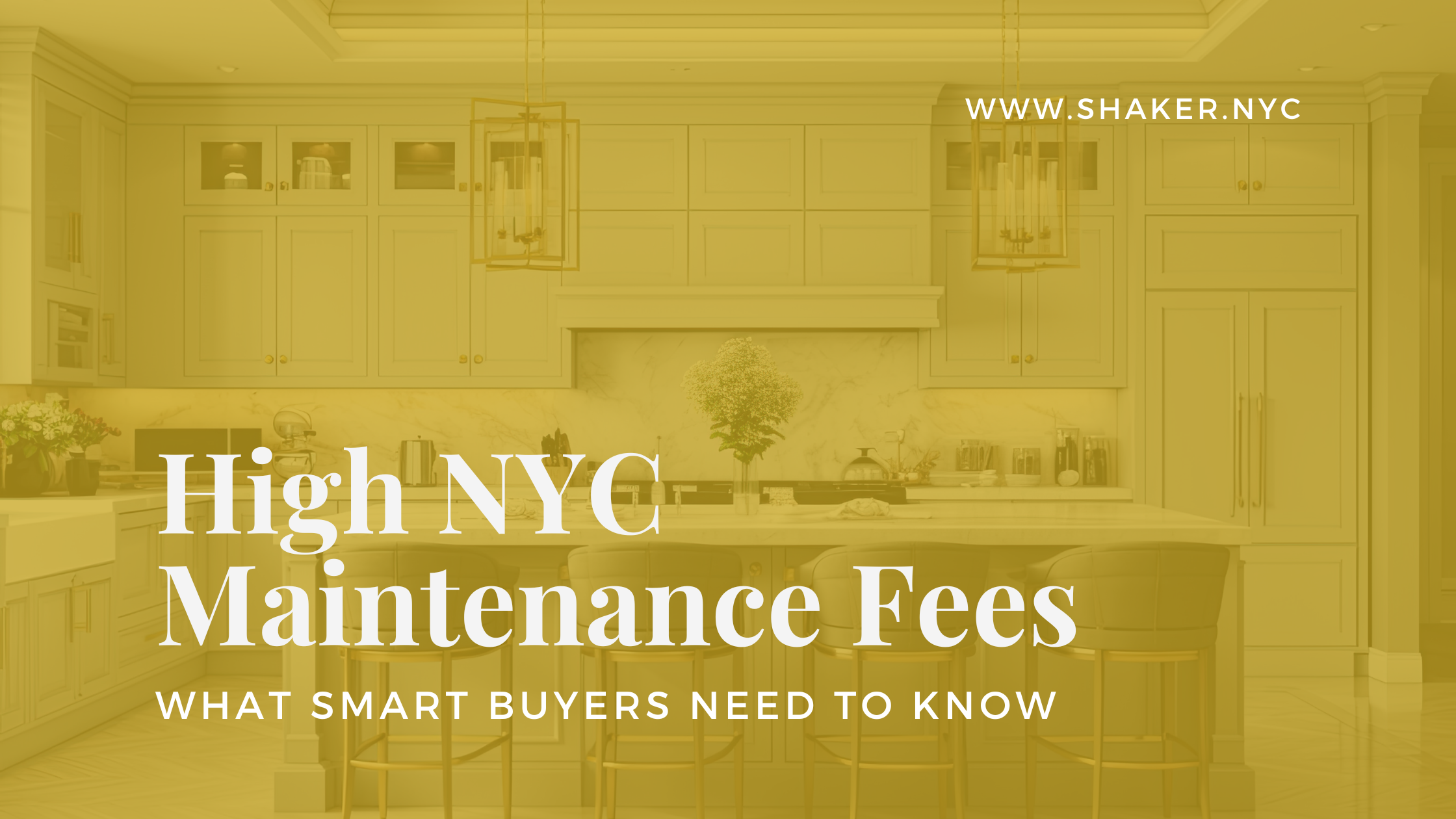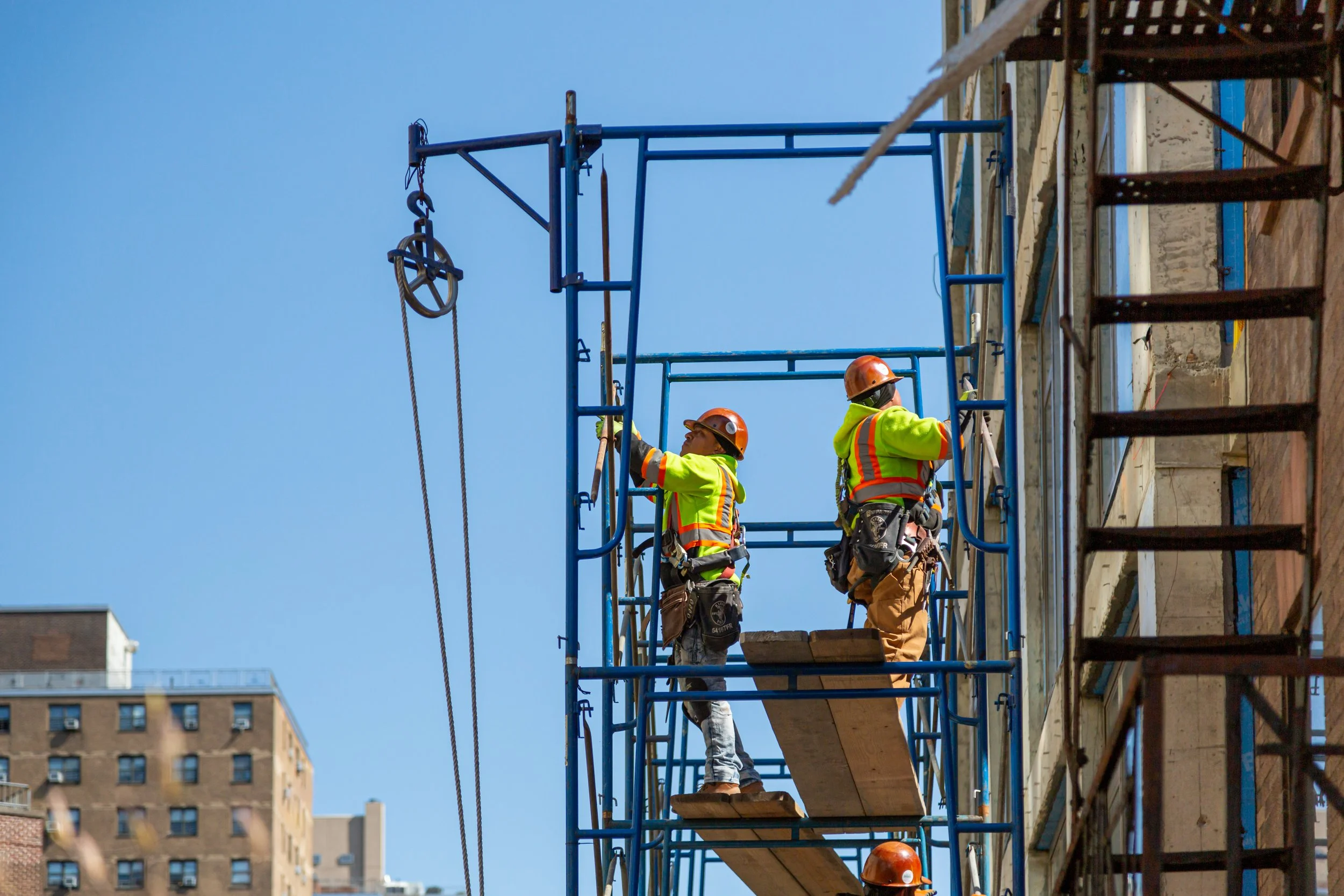High NYC Maintenance Fees: What Smart Buyers Need to Know
If you buy an apartment without understanding the carrying costs, you could find yourself throwing money down the drain month after month. Don’t worry - this article breaks down the different types of maintenance fees in NYC so you can make confident, well informed buying decisions. Let’s dive in!
Co-op Carrying Costs: Maintenance Fees (All-in-One)
Co-ops have what is technically called maintenance fees. These fees - sometimes just referred to as “maintenance” - covers both the standard operating expenses for the building as well as your property taxes. Each shareholder pays maintenance based on the amount of shares they own. Your coop board determines how much maintenance is owed per share.
What do co-op maintenance fees pay for?
The fee pays for a myriad of different things including:
Property taxes
Building insurance
Staff salaries (doormen, superintendents, porters, etc.)
Heat, water, and other utilities (in many cases)
Repairs and upkeep of common areas
Mortgage on the building, if applicable
💡 Key point: Co-ops bundling property taxes into your maintenance fee. You won’t get a separate tax bill — it’s all included.
Condo Carrying Costs: Taxes + Common Charges
Condos, on the other hand split up the costs of operating the building and the property taxes paid to the city. Each month you’ll pay your common charges to your building. Your tax bill is due on a quarterly basis. You can also ask your lending institution to add it to your monthly mortgage payment.
Your common charges, sometimes referred to as HOA fees, cover the general costs of running a building. Staff salaries, heat and hot water, small repairs and upkeep of common areas and the mortgage on the building are all paid via your common charges. The more amenities your building has, the more you should expect to pay in common charges.
💡 Pro tip: Because you pay taxes separately in a condo, you may qualify for certain property tax abatements or reductions (such as the 421a or J-51 programs).
🧾 Assessments: The Unexpected Extra
An assessment is a temporary additional fee charged by the building’s board to cover a non-routine expense. These might include:
Lobby renovations
Roof repairs
New elevators
Local Law 11 facade work
Major mechanical system upgrades
Assessments can last anywhere from a few months to a few years, depending on the size and scope of the project. Your real estate agent will ask about assessments during the negotiation process. During due diligence, your attorney will double check to make sure you know exactly what your monthly carrying responsibility will be.
Must Ask Questions while touring
Are there any current assessments?
Are any upcoming projects being discussed?
How Carrying Costs Affect Your Mortgage Approval
When you apply for a mortgage, lenders don’t just look at the purchase price of the apartment. They also take your carrying costs into account when calculating your debt-to-income ratio (DTI), the percentage of your monthly gross income that goes toward debt payments. Keeping this number below a certain amount helps lenders make sure you aren’t overextended.
💡 Why this matters: Higher carrying costs can lower the amount you’re approved to borrow.
👉 Tip: Before you make an offer, ask your lender to run the numbers with the unit’s actual monthly charges. That way, you’ll know exactly what you can afford.
FAQs
Why are maintenance fees in NYC so high?
Most of your carrying costs go toward the fixed expenses of running your building which can quickly add up. Rising costs of insurance as well as rising real estate taxes contribute to these fees. Your payments also go toward your building’s reserve fund which helps pay for bigger expenses.
Why do I get charged a maintenance fee?
Running a building is an involved and expensive task. Your maintenance fee goes toward running and maintaining the building. Without your monthly payments, the building wouldn’t be able to pay for any of it’s employees or do necessary repairs when things break.
Are HOA fees a waste of money?
HOA fees in NYC go directly toward maintaining your building and making it a nice place to live. A well run and maintained building keeps property values up for owners and ensures you enjoy a pleasant home environment.
Is a high maintenance fee a red flag?
High fees can be a red flag depending on a myriad of factors. In a building with a large number of associated amenities, a higher maintenance fee may be justified. In older buildings that require a lot of upkeep, buyers should potentially expect higher fees as well.
Can you negotiate lower HOA fees?
No. Your HOA fees are set by your coop or condominium board.
Making the Right Decision Starts with the Right Resources
Whether your looking for a sleek modern condo in Tribeca or a charming pre war coop on the Upper West Side, it’s always best to equip yourself with the right resources. That’s why I created my free NYC Home Buyer’s Guide to simplify the entire process. It’s designed to walk you through each step of buying in NYC, from financial prep to co-op board approvals. The best part - it’s totally free - Download it today!




